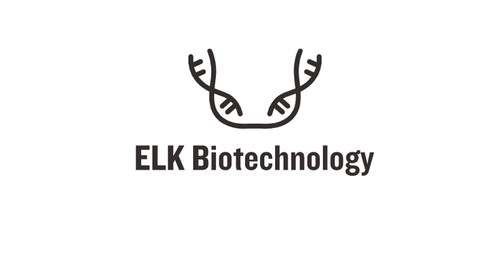Product Description
Human Platelet endothelial cell adhesion molecule (PECAM1) ELISA Kit | KTE61255 | Abbkine
Application: This Human Platelet endothelial cell adhesion molecule (PECAM1) ELISA Kit employs a two-site sandwich ELISA to quantitate PECAM1 in samples. An antibody specific for PECAM1 has been pre-coated onto a microplate. Standards and samples are pipetted into the wells and anyPECAM1 present is bound by the immobilized antibody. After removing any unbound substances, a biotin-conjugated antibody specific for PECAM1 is added to the wells. After washing, Streptavidin conjugated Horseradish Peroxidase (HRP) is added to the wells. Following a wash to remove any unbound avidin-enzyme reagent, a substrate solution is added to the wells and color develops in proportion to the amount of PECAM1 bound in the initial step. The color development is stopped and the intensity of the color is measured.
Detection Method: Colorimetric
Conjugate: N/A
Sample Type: Cell culture supernatants#Serum#Plasma#Other biological fluids
Assay Type: Multiple steps standard sandwich ELISA assay with a working time of 3-5 hours. It depends on the experience of the operation person.
Kit Component: • Human Platelet endothelial cell adhesion molecule microplate
• Human Platelet endothelial cell adhesion molecule standard
• Human Platelet endothelial cell adhesion molecule detect antibody
• Streptavidin-HRP
• Standard diluent
• Assay buffer
• HRP substrate
• Stop solution
• Wash buffer
• Plate covers
Features & Benefits: Human Platelet endothelial cell adhesion molecule (PECAM1) ELISA Kit has high sensitivity and excellent specificity for detection of Human PECAM1. No significant cross-reactivity or interference between Human PECAM1 and analogues was observed.
Calibration Range: Please inquire
Limit Of Detection: Please inquire
Usage Note: • Do not mix components from different kit lots or use reagents beyond the kit expiration date.
• Allow all reagents to warm to room temperature for at least 30 minutes before opening.
• Pre-rinse the pipet tip with reagent, use fresh pipet tips for each sample, standard and reagent to avoid contamination.
• Unused wells must be kept desiccated at 4 °C in the sealed bag provided.
• Mix Thoroughly is very important for the result. It is recommended using low frequency oscillator or slight hand shaking every 10 minutes.
• It is recommended that all samples and standards be assayed in duplicate or triplicate.
Storage Instruction: The unopened kit should be stored at 2 - 8°C. After opening, please store refer to protocols.
Shipping: Gel pack with blue ice.
Precaution The product listed herein is for research use only and is not intended for use in human or clinical diagnosis. Suggested applications of our products are not recommendations to use our products in violation of any patent or as a license. We cannot be responsible for patent infringements or other violations that may occur with the use of this product.
Background: CD31 is a cluster of differentiation molecule. It is also called PECAM-1 for platelet endothelial cell adhesion molecule. It plays a key role in removing aged neutrophils from the body. Macrophages palpate any passing neutrophil and have to decide whether the cell is healthy or has to be ingested. In humans, the gene encoding CD-31 is found on chromosome 17. If a neutrophil is dying, it will have phosphatidyl serine in its plasma membrane. Both the neutrophil and the macrophage express CD-31 on their membranes, and, during the testing process, these CD-31 molecules bind the two cells together. If the neutrophil is healthy, it will now fire a signal to the macrophage, and the CD-31 molecules will detach. The neutrophil is now free.
Alternative Names: PECAM1; CD31; FLJ58394; PECAM-1; CD31 antigen; CD31/EndoCAM; PECAM-1; CD31/EndoCAM; adhesion molecule
Search name: PECAM1; CD31; FLJ58394; PECAM-1; CD31 antigen; CD31/EndoCAM; PECAM-1; CD31/EndoCAM; adhesion molecule
Tag: PECAM1
 Euro
Euro
 USD
USD
 British Pound
British Pound
 NULL
NULL








